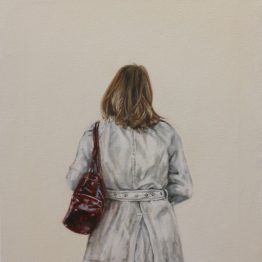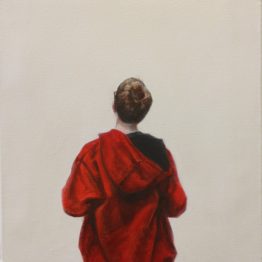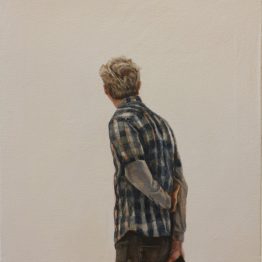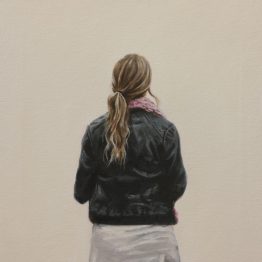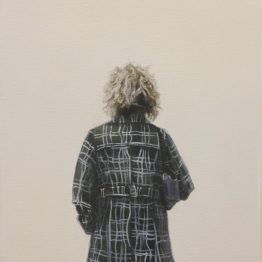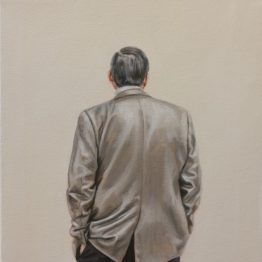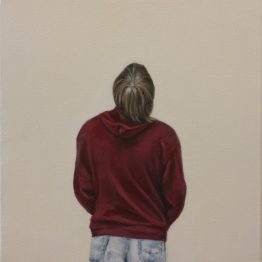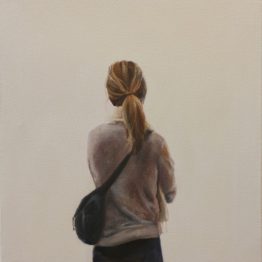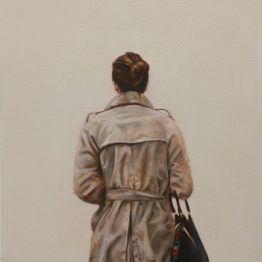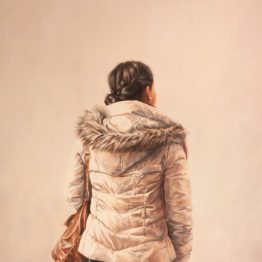Sunday at the Art Institute
Through these paintings by Jose Antonio Ochoa, the power of a human gaze becomes evident. We are accustomed to seeing the objects of our senses portrayed in art, without noticing that profoundly human activities are hiding behind them. We see trees, chairs, colours and the most diverse forms, but the sight (or glance) as such always seems to be hidden. These paintings, by contrast, hide the objects, revealing the observer’s action of having to look, and thereby create a powerful instance of abstraction.
In the final analysis, these sorts of fundamental acts are the ones that define us in a most radical way: we are thought, we are glance, we are life. That is the reason why behind the backs of these observers we feel with more swiftness the proper irradiation of every human face, while the portraits leave us facing the inscrutable mysteries of life. Even though each painting encloses radically singular content, it is not hard to identify each of those paintings and move from being observers to feeling portrayed. Moreover, the strength generated by the empty spaces and the atmosphere of uncertainty expressed on the backgrounds, increase our interest in knowing the people that have been portrayed and invite our imagination to be part of a conversation that is no less profound despite lacking words.
Painting people that gaze, even though their back is being presented, is not the dehumanization of art, indeed quite the opposite. This series of paintings, in addition to accenting the gaze as an action, makes us feel the specific weight of each gaze. Maybe this will cause us to think about our own gaze. As well as not being all alike, gazes are not all neutral. A fact that can’t be denied is that we are surrounded by gazes, since human beings are present everywhere around us, so that where there is a human being, there is someone who gazes. Precisely what makes these paintings more human is that they help us to value people not for what they have or do, but for what they are.
